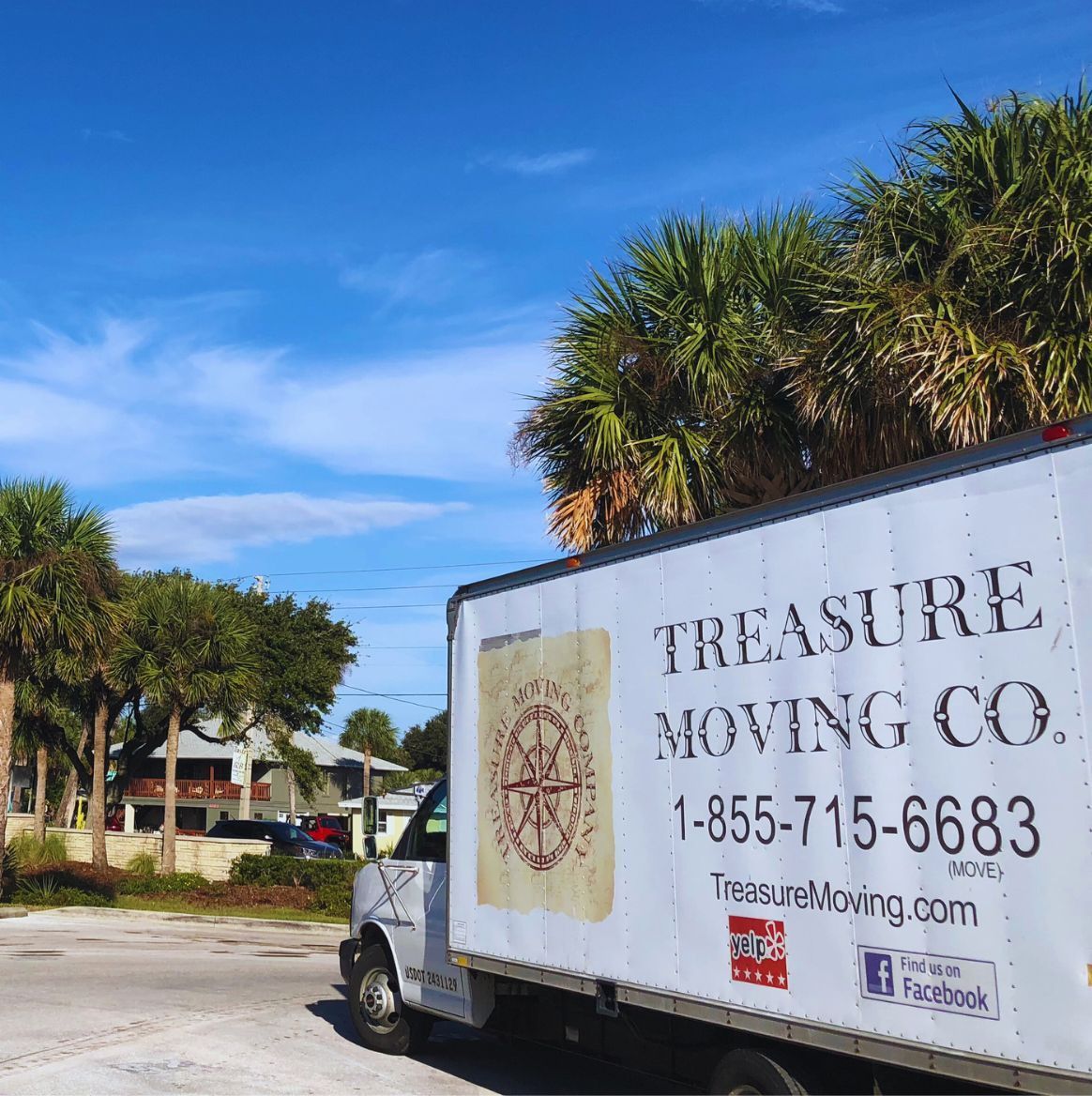By Darlene D
•
September 16, 2025
We understand that choosing the right neighborhood represents one of your family's most important decisions—especially when you're considering a move to a community as diverse and opportunity-rich as Rockville. Whether you're attracted to the area's world-class research facilities, top-rated schools, or convenient access to Washington D.C., finding the perfect community requires more than browsing real estate listings. You need genuine insights into what daily life looks like in each area. This comprehensive guide to Rockville neighborhoods breaks down everything you need to know about the communities that make up this Maryland gem. From family-friendly suburbs to luxury golf course communities, we'll help you understand not just where these areas are located, but what makes each one special, who thrives there, and what you can realistically expect from day-to-day living. Understanding Rockville's Geographic Layout Before exploring specific areas in Rockville, it's essential to understand how this Montgomery County city is organized. Rockville spreads across both established neighborhoods with decades of character and newer master-planned communities with contemporary amenities. The city naturally divides into distinct zones: the historic downtown core, established residential areas radiating outward, luxury communities clustered around amenities like golf courses, and newer developments expanding toward the county's boundaries. Each zone offers different lifestyle experiences, price points, and community characteristics. The western areas tend toward established luxury, while eastern sections feature newer developments and more affordable options. Northern communities often emphasize family amenities, while southern areas provide better access to Metro stations and downtown Washington D.C. Popular Neighborhoods in Rockville: An Overview Rockville's most sought-after neighborhoods have earned their reputation through distinct combinations of amenities, character, and lifestyle benefits that appeal to different resident priorities. Understanding what makes these areas popular helps you identify which communities might match your specific needs while avoiding neighborhoods that don't align with your preferences. Downtown and Central Areas The heart of Rockville pulses with urban energy while maintaining suburban comfort. Downtown living means walking to restaurants, cultural venues, and community events while enjoying easy Metro access. The Rockville Town Square area has transformed into a modern mixed-use environment with condos, townhomes, and street-level retail that appeals to young professionals and empty nesters. Living in central Rockville means embracing convenience where car dependency drops significantly. You'll find yourself walking to farmers markets, attending concerts at the Rockville Civic Center, and enjoying easy access to the library and community services. However, this convenience typically comes with higher housing costs than suburban alternatives. Established Western Communities West of downtown, neighborhoods like Potomac Woods, Woodley Gardens, and Lincoln Park represent some of Rockville's most desirable established areas. These Rockville communities attract families and professionals who value mature character, large lots, and proximity to both recreational amenities and employment centers. Tree-lined streets, architectural variety, and neighborhood stability create environments where families establish deep roots. These areas provide excellent value for those prioritizing character over new construction amenities. Schools maintain strong community connections, local parks serve as neighborhood gathering places, and residents often know their neighbors by name. Northern Luxury Communities North Rockville features some of the area's most prestigious neighborhoods. Fallsgrove stands out as the premier luxury community, with its championship golf course, resort-style amenities, and custom homes ranging from $800,000 to over $2 million. King Farm offers luxury living with Metro access, appealing to executives who want upscale amenities without sacrificing commuting convenience. These communities provide country club lifestyles with organized activities, comprehensive amenities, and maintenance-free living that appeals to successful professionals and active retirees. However, premium amenities come with corresponding HOA fees and higher property costs. Eastern Value Areas Eastern Rockville neighborhoods like Hungerford and parts of Twinbrook offer more affordable entry points while maintaining access to Montgomery County's excellent schools and community services. These areas attract first-time buyers, young families, and anyone seeking good value in an expensive region. While these neighborhoods might lack some luxury amenities, they provide authentic community character, convenient access to major employment centers, and opportunities to build equity for future moves within Rockville or the broader region. Transit-Oriented Communities Areas surrounding Rockville's three Metro stations—Shady Grove, Rockville, and Twinbrook—cater to residents who prioritize public transportation access. These walkable neighborhoods in Rockville reduce car dependency while providing urban convenience with suburban residential character. Transit-oriented living appeals to commuters working in Washington D.C., young professionals who prefer car-light lifestyles, and families who want to reduce transportation costs while maintaining access to regional opportunities. Living in Rockville Neighborhoods: What to Expect Daily life in Rockville varies significantly by neighborhood, but certain characteristics define the experience across all communities. Understanding these common elements helps set realistic expectations while appreciating what makes each area unique within the broader city context. Climate and Seasonal Lifestyle Every Rockville neighborhood shares the Mid-Atlantic four-season climate that defines life here. Spring brings cherry blossoms and comfortable outdoor weather perfect for community events and recreational activities. Summer means warm, humid conditions ideal for pool activities and evening community gatherings, though air conditioning becomes essential for comfort. Fall offers spectacular foliage and excellent weather for exploring parks and trails that connect Rockville's neighborhoods. Winter brings occasional snow and indoor community programming, but rarely enough severe weather to significantly disrupt daily routines. Most residents appreciate the seasonal variety while enjoying more mild winters than northern regions. Transportation and Commuting Patterns Understanding traffic patterns and commute options proves essential when choosing among Rockville neighborhoods. The city's excellent Metro Red Line service provides three stations offering direct access to downtown Washington D.C. in 25-30 minutes during peak hours. However, parking at Metro stations fills early during weekdays, making proximity to stations valuable for daily commuters. Highway access via I-270 and the Capital Beltway provides regional connectivity, though traffic congestion during rush hours affects commute times to suburban employment centers. Most neighborhoods offer reasonable access to major roads, but island communities and areas farther from highway access might require longer travel times for regional destinations. Community Amenities and Services The amenities available vary significantly between neighborhoods. Newer master-planned communities feature resort-style pools, fitness centers, and organized activities, while established areas offer mature parks, community centers, and longtime local businesses. Understanding what matters most to your lifestyle helps narrow your neighborhood search. Shopping and dining options range from upscale Town Square establishments to practical strip centers along major corridors like Rockville Pike and Route 355. Most neighborhoods provide convenient access to grocery stores and essential services, though proximity to specialty shops and fine dining varies considerably by location. Specific Neighborhood Profiles Each Rockville neighborhood has developed its own distinct character over time, shaped by demographics, amenities, and community priorities. These detailed profiles help you understand what daily life looks like in each area and which communities might best match your lifestyle preferences. Fallsgrove: Premier Luxury Living Fallsgrove represents Rockville's most prestigious residential community, built around a championship golf course designed by Tom Fazio. This master-planned neighborhood features custom homes, resort-style amenities, and comprehensive community programming that creates a country club lifestyle within suburban convenience. Housing and Costs : Homes range from $800,000 to over $2 million, with custom construction, premium finishes, and larger lots than typical suburban developments. HOA fees support extensive amenities including golf course maintenance, clubhouse operations, and community programming. Community Character : Active residents participate in organized events, golf leagues, fitness classes, and social activities. The community attracts successful professionals, executives, and retirees who value luxury amenities and social engagement. Family Appeal : While upscale, Fallsgrove welcomes families with children's programming, pool activities, and proximity to excellent schools. The safe, walkable environment allows children independence while parents enjoy peace of mind. King Farm: Transit-Oriented Luxury King Farm combines upscale living with practical Metro access, creating an ideal environment for professionals who want luxury amenities without sacrificing commuting convenience. This planned community features contemporary architecture, community facilities, and direct access to Shady Grove Metro station. Transportation Benefits : Walking distance to Metro provides car-free commuting to Washington D.C., while highway access serves suburban employment centers. The community design emphasizes walkability and reduces car dependency for daily activities. Housing Options : Homes and townhomes range from $650,000 to $950,000, featuring modern construction, energy efficiency, and community-integrated design. The variety accommodates different family sizes and lifestyle preferences. Professional Appeal : The community attracts young executives, government employees, and professionals working in Rockville's biotechnology sector who value both luxury living and transportation convenience. Twinbrook: Diversity and Accessibility Twinbrook offers one of Rockville's most multicultural environments, with international residents creating authentic cultural diversity that enriches community life. This established neighborhood provides affordable access to Montgomery County's excellent schools while maintaining direct Metro access. Cultural Character : International population creates opportunities for global cultural experiences, authentic restaurants, and language learning that benefits families seeking diversity and global perspectives. Affordability Factor : Housing costs typically range from $550,000 to $750,000, providing accessible entry into Rockville's community benefits and school system without the premium costs of luxury developments. Transportation Access : Twinbrook Metro station enables car-free commuting while local bus connections provide convenient access to shopping, services, and recreational facilities throughout Montgomery County. Woodley Gardens: Established Family Character Woodley Gardens represents classic suburban family living with mature landscaping, established community traditions, and neighborhood character that develops naturally over decades. Tree-lined streets, varied architecture, and longtime residents create environments where families build lasting connections. Family Stability : Strong school relationships, established childcare networks, and community traditions provide consistency that benefits children through stable friendships and neighborhood connections that span generations. Natural Environment : Mature trees, established gardens, and neighborhood parks create natural play environments while teaching children environmental appreciation and outdoor activity habits. Community Engagement : Active neighborhood association, civic participation, and longtime residents who maintain community traditions and support newcomers seeking to integrate into established neighborhood life. Rose Hill Falls: Contemporary Family Development Rose Hill Falls appeals to families seeking modern construction, energy efficiency, and community amenities specifically designed around today's family needs. This newer development features contemporary homes, updated facilities, and programming that builds neighborhood connections. Modern Features : New construction homes priced $600,000 to $850,000 offer current building standards, energy efficiency, warranty protection, and floor plans designed for contemporary family lifestyles and remote work needs. Community Programming : Active homeowners association organizes family events, youth activities, seasonal celebrations, and community service projects that help new residents integrate while building neighborhood social networks. Family Amenities : Updated community center, contemporary playgrounds, and technology-integrated facilities provide children with current recreational and educational opportunities that complement school programming. Lincoln Park: Historic Accessibility Lincoln Park provides affordable access to Rockville's benefits while offering historic character and walkable access to downtown services, cultural venues, and community amenities. This established neighborhood appeals to first-time buyers and families seeking character over luxury. Historic Appeal : Character homes with architectural variety, established neighborhood history, and authentic community character that reflects decades of residential development and community evolution. Downtown Connectivity : Walking distance to downtown Rockville services, restaurants, Metro access, and community facilities reduces transportation needs while providing urban convenience with residential comfort. Value Proposition : Housing prices typically $420,000 to $680,000 make Montgomery County's excellent schools and community amenities accessible to families who might otherwise be priced out of Rockville's benefits. Families specifically seeking the most child-friendly communities should explore our detailed Best Family Neighborhoods in Rockville guide , which provides in-depth analysis of school ratings, safety features, and family programming across Rockville's top residential areas for children. Choosing the Right Neighborhood for Your Lifestyle Different life stages and priorities call for different neighborhood characteristics and amenities. Understanding what matters most to your daily happiness helps narrow your choices among Rockville's diverse communities and focus on areas that truly match your needs. For Families with Children Families moving to Rockville neighborhoods typically prioritize school quality, safety, and community amenities that support child development. Montgomery County Public Schools serve all Rockville areas, but specific school assignments and specialized programs vary by location. School Considerations : Research specific elementary, middle, and high school assignments, as quality and programs vary. Many Rockville schools earn top ratings, but understanding district boundaries and magnet program access helps narrow neighborhood choices. Safety Priorities : Most Rockville neighborhoods maintain excellent safety records, but factors like traffic patterns around schools, neighborhood watch participation, and community engagement affect daily security and peace of mind. Community Programming : Look for neighborhoods with active youth sports, community centers with family programming, and parks or trails that provide safe outdoor activities for children of different ages. For Young Professionals Young professionals often seek different amenities when evaluating where to live in Rockville. Walkability, nightlife options, networking opportunities, and proximity to career advancement take precedence over traditional family considerations. Career Proximity : Consider commute patterns to major employment centers including downtown D.C., Bethesda's NIH campus, and Rockville's biotechnology corridor. Metro access provides car-free options while highway connectivity serves suburban opportunities. Social Opportunities : Downtown areas and communities near Metro stations typically offer more social activities, networking events, and entertainment options that support both professional advancement and personal relationships. Housing Flexibility : Condos and townhomes in transit-oriented areas provide lower maintenance living that suits busy professional lifestyles, while offering potential for easy relocation as careers develop. For Retirees and Empty Nesters Rockville attracts retirees and empty nesters seeking communities that balance cultural amenities, healthcare access, and social engagement. Many neighborhoods cater specifically to active adults, while others provide intergenerational environments that welcome older residents. Healthcare Access : Proximity to excellent medical facilities, specialists, and emergency services becomes increasingly important. Rockville's location near NIH and major medical centers provides comprehensive healthcare access. Cultural Activities : Access to libraries, arts venues, continuing education, and cultural programming supports intellectual engagement and social connections that enhance retirement quality of life. Maintenance Considerations : Communities with HOA services that handle exterior maintenance, landscaping, and property management appeal to those wanting to reduce homeowner responsibilities while maintaining property value. For those drawn to urban convenience and walkable downtown living, our complete Living in Rockville Town Square Guide explores the unique lifestyle, amenities, and community culture of Rockville's premier mixed-use development. Cost of Living Across Different Areas Understanding the complete financial picture helps families and individuals make sustainable neighborhood decisions in Rockville's competitive market. Housing costs represent the largest expense, but ongoing fees, taxes, and community amenities significantly impact your monthly budget and long-term financial planning. Housing Costs and Investment Potential Housing prices in Rockville neighborhoods vary significantly based on location, age, amenities, and school access. Luxury communities and areas with exceptional school ratings command premium prices, while established neighborhoods and eastern areas provide more affordable entry points. Market Dynamics : Strong employment base in biotechnology, government, and healthcare creates consistent housing demand that supports property values. School quality and community amenities significantly influence pricing and appreciation potential. Investment Considerations : Properties in top school districts and master-planned communities typically show strongest appreciation and market resilience. However, affordable areas might offer better cash flow for investors and growth potential for first-time buyers. Property Taxes and Ongoing Costs Montgomery County property taxes support excellent schools and community services but represent significant ongoing costs. Current rates average 1.0-1.2% annually, with variations based on specific location and property characteristics. HOA Fees : Community association fees vary dramatically, from $50 monthly in basic associations to $500+ in luxury communities with extensive amenities. These fees support community maintenance, amenities, and programming that enhance lifestyle but affect monthly budgets. Utility and Maintenance : Newer homes typically offer energy efficiency that reduces utility costs, while older properties might require updates but offer larger lots and mature landscaping that provide different value propositions. Safety and Community Engagement Security and community involvement form the foundation of neighborhood satisfaction in Rockville's residential areas. Strong community connections and proactive safety measures create environments where families feel secure and residents of all ages can build meaningful relationships with their neighbors. Security and Crime Prevention Rockville consistently ranks among Maryland's safest communities, with comprehensive security measures and community engagement that create genuinely secure environments for residents of all ages. Community Policing : Montgomery County Police maintain strong community relationships through neighborhood watch programs, school resource officers, and regular community meetings that address resident concerns proactively and build trust. Traffic Safety : School zone enforcement, crossing guard programs, and pedestrian-friendly infrastructure design prioritize safety throughout residential areas, particularly around schools and community facilities. Emergency Preparedness : Comprehensive emergency response systems, community notification systems, and resident preparedness programs ensure families receive timely information and support during any emergency situations. Neighborhood Watch and Community Involvement Active community engagement contributes significantly to neighborhood safety and quality of life. Areas with strong homeowner associations, active community watch programs, and engaged residents typically maintain the safest and most desirable living environments. Civic Participation : Neighborhoods with active civic engagement, regular community meetings, and resident involvement in local government decisions tend to maintain better services and address problems proactively. Social Networks : Communities where neighbors know each other, children play together, and residents participate in shared activities create natural security systems while enhancing social connections and quality of life. Future Development and Growth Rockville continues evolving as new developments, infrastructure projects, and community enhancements reshape different neighborhoods. Understanding planned changes and growth patterns helps prospective residents anticipate how their chosen community might evolve over the coming years. Planned Development Projects Rockville continues evolving with new developments, infrastructure improvements, and redevelopment projects that will reshape certain neighborhoods over coming years. Understanding planned changes helps predict future character and property values. Infrastructure Improvements : Planned road improvements, Metro enhancements, and utility upgrades will affect traffic patterns and convenience while potentially disrupting construction during implementation phases. Commercial Development : New shopping centers, office buildings, and mixed-use projects will provide convenient amenities while potentially increasing traffic and changing neighborhood character in surrounding areas. Zoning and Long-term Planning Montgomery County's comprehensive planning documents provide insights into future development patterns and zoning changes that might affect specific neighborhoods. Areas designated for increased density might see character changes, while conservation areas maintain current residential patterns. Growth Management : County growth management policies attempt to balance development with infrastructure capacity, but rapid population growth occasionally strains services and creates temporary inconveniences during adjustment periods. Making Your Neighborhood Decision Selecting the right Rockville neighborhood requires balancing multiple factors including budget, lifestyle priorities, family needs, and long-term goals to identify the community that best supports your happiness and success. The decision process involves both practical research and personal reflection to ensure your chosen neighborhood aligns with how you actually want to live day-to-day. Research and Exploration Strategies Choosing among Rockville neighborhoods requires more than online research. Visit different areas during various times of day and week to understand traffic patterns, noise levels, and community activity that affect daily quality of life. Seasonal Considerations : If possible, visit during different seasons to understand how weather affects your commute, outdoor activities, and community programming. What seems perfect during spring weather might feel different during summer humidity or winter conditions. Community Interaction : Talk to current residents when possible. They provide insights no guide can capture—like which local services are most reliable, how the community handles challenges, and what makes their neighborhood feel like home. Working with Local Professionals Real estate agents familiar with Rockville provide valuable insights into neighborhood dynamics, market trends, and subtle differences between areas. They understand school boundaries, commute patterns, and community characteristics that significantly affect daily life satisfaction. Local Expertise : Professionals who specialize in Rockville understand market conditions, pricing trends, and neighborhood characteristics that help match your priorities with appropriate communities while avoiding common relocation mistakes. Community Resources : Connect with community groups, online forums, and local organizations that provide perspective from current residents and help you understand neighborhood culture before committing to a specific area. Your Perfect Rockville Neighborhood Awaits Choosing where to live in Rockville represents more than selecting a house—it's about finding a community that supports your lifestyle, career goals, and personal happiness. From luxury golf course living to diverse multicultural communities, from transit-oriented convenience to family-focused suburbs, this area guide demonstrates that Rockville offers something for virtually every preference and priority. Take time to explore different neighborhoods, understanding that the perfect community for colleagues or friends might not suit your specific needs and circumstances. Consider both current requirements and future plans, as the right neighborhood should accommodate your life as it evolves over years of residence. Remember that moving to Rockville means joining a community that values education, innovation, diversity, and quality of life. The city's position as a biotechnology hub, its excellent schools, and its convenient access to Washington D.C. create opportunities that few communities can match. Whichever neighborhood you choose, you're becoming part of a city that consistently attracts families, professionals, and retirees seeking the best that the Washington metropolitan area offers. As you continue your neighborhood research, focus on aspects that matter most to your daily happiness and long-term goals. Consider visiting our guide to the Rockville City Guide if you're relocating with children, or explore specific community amenities that align with your lifestyle priorities. At Treasure Moving Company, we understand that neighborhood selection represents one of your most important decisions, affecting everything from your daily routines to your children's educational opportunities. Our experienced team has helped numerous families and individuals successfully relocate to Rockville's diverse communities, and we appreciate the significance of finding the perfect neighborhood match for your unique needs and preferences. Whether you're drawn to luxury amenities, cultural diversity, educational excellence, or transportation convenience, we're here to make your transition to the ideal Rockville neighborhood smooth and successful. Every move holds value, and your move to the perfect Rockville community deserves the care and expertise that comes from understanding what makes each neighborhood special. Contact Treasure Moving Company today to discuss how we can support your journey to your ideal Rockville neighborhood.













